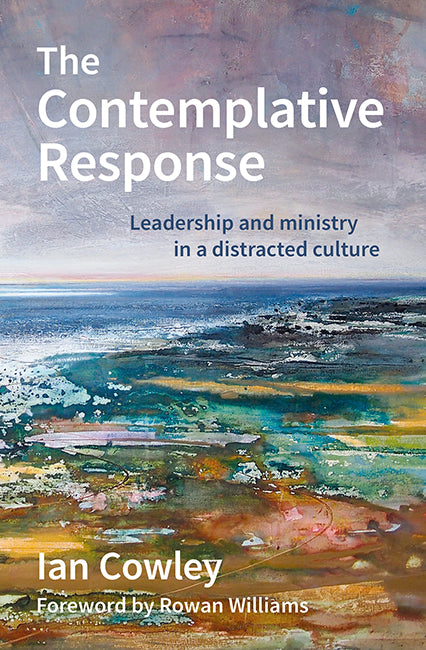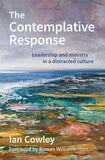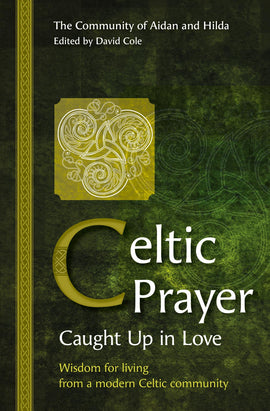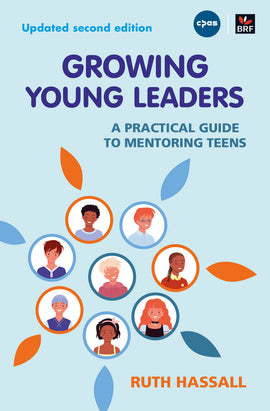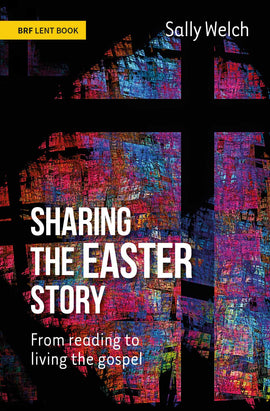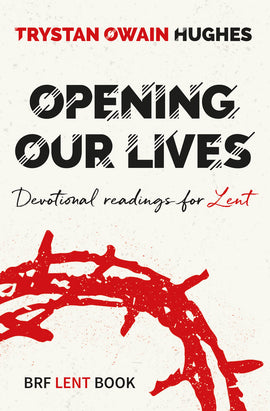The Contemplative Response: Leadership and ministry in a distracted culture
The true self finds peace in God's love
The true self finds peace in resting in the love of God, in the peace which Jesus promises. Jesus says to each of us in ministry, 'As the Father has loved me, so have I loved you. Abide, rest, dwell, in my love' (John 15:9). This book will seek to show what this might mean for those in Christian ministry in the 21st century.
| Title | The Contemplative Response: Leadership and ministry in a distracted culture |
| Author | Ian Cowley |
| Description | The true self finds peace in resting in the love of God, in the peace which Jesus promises. Jesus says to each of us in ministry, 'As the Father has loved me, so have I loved you. Abide, rest, dwell, in my love' (John 15:9). This book will seek to show what this might mean for those in Christian ministry in the 21st century. Following on from the success of The Contemplative Minister, Ian Cowley offers new insight and greater depth for church leaders in a distracted world. Cowley emphasises that the true self finds peace in resting in the love of God, and he encourages ministers to minister to themselves as well as to others, and to ensure that, in the peace that Jesus promises, their spiritual lives don't run dry amid the pressures of the job. A must-read for leaders wanting to stay the course. |
| Details |
|
The true self finds peace in resting in the love of God, in the peace which Jesus promises. Jesus says to each of us in ministry, 'As the Father has loved me, so have I loved you. Abide, rest, dwell, in my love' (John 15:9). This book will seek to show what this might mean for those in Christian ministry in the 21st century.
Following on from the success of The Contemplative Minister, Ian Cowley offers new insight and greater depth for church leaders in a distracted world. Cowley emphasises that the true self finds peace in resting in the love of God, and he encourages ministers to minister to themselves as well as to others, and to ensure that, in the peace that Jesus promises, their spiritual lives don't run dry amid the pressures of the job.
A must-read for leaders wanting to stay the course.
Ian Cowley is Vocations and Spirituality Coordinator for the Diocese of Salisbury and set up and developed the Contemplative Minister programme, which has been greatly appreciated by many clergy. He has also written A People of Hope (Highland, 1993), Going Empty Handed (Monarch, 1996) and The Transformation Principle (Kingsway, 2002). He has been a parish priest in Natal, South Africa, and also in Cambridge and Peterborough.
To read Ian's lockdown blog 'Wild times and love of God' click here.
The Julian Meetings Magazine, April 2020. Review by Gail Ballinger
This book explores being a Christian minister or leader in a 'world of ceaseless busyness, endless demands & seductive consumerism'. How to respond to all that drags us away from intimacy with God. How to cope with our compulsive self-centredness. How to reground ourselves: learn contentment, detachment and self-control.
Ian considers issues of the false self: the desire to acquire, to achieve, to indulge, together with some ways to deal with them. However, the book opens with him studying theology in his native South Africa and the questions thrown up by apartheid. It closes with chapters on the contemplative heart, ending with interior silence drawing on the Rule of Taizé.
A rewarding and often challenging read, it is very accessible and sympathetic and is for ALL who seek to follow Christ, not just leaders and ministers.
Review by Gail Ballinger
The Merton Journal, Advent 2019. Reviewed by Ben Hopkinson
That we live in a distracted culture seems almost too obvious to say. Walk down a street, or sit in a railway carriage, and see how many people have their eyes glued to their phones or tablets. Sit in a restaurant and there are almost certainly fellow diners who, though sitting together, seem not to be interested in each other but only in their devices, as these things have come to be called.
The mobile phone is a symbol of our present age, where old patterns of living and working, where old moralities have, in so many ways, been torn to shreds. This pattern of change is not only to be found in the affluent ‘west’ but increasingly across the whole world. Places that were once far removed from advanced technology are now no longer so. Even though there are many people who have not yet caught up or who are neglected, oppressed and set aside, those with power have now found a new means to enforce it. But it is worth noting, too, that the downtrodden are also finding ways of making themselves felt, using new technology to coordinate their protests. The symbol is set in the midst of an affluent culture that seems to set its values as being about how much one has, how successful one is in terms of work position or social status, and how much luxury and comfort a person can grasp, because therein the objectives of life seem to be set.
Where, in this maze, do we set our compass bearings? How do we distinguish what is false about ourselves and our milieu, and find a direction that connects with the truth of who we are as human beings? How do we meet God in the middle of all this noise? These are the vital questions which this book poses and to which it gives possible answers.
Ian Cowley is an Anglican priest who was born and grew up in South Africa during the years when apartheid was at its most appalling. He has served as a parish priest in Natal and in England. Before retiring from full time ministry he spent eight years as the Vocations and Spirituality Coordinator of the Diocese of Salisbury. He has travelled widely, and soaked himself in the wisdom of Thomas Merton. He finds that by opening ourselves to the presence of God in a way that is discovered through contemplative prayer we can reset our lives to eternal, true and fundamental reality.
The subject matter of this book is of importance for anyone who is trying to follow the Christian way. It is timely, tackling essential problems of discipleship. Primarily, it is written with clergy in mind, and though written from Anglican experience, the quandaries and potential for despair that it addresses are common to clergy of all denominations. Cowley looks the problems in the face, examining them from his own personal context, as he has been 'led to reflect on my own inner life, and the ways in which I tend to respond to the demands and pressures of public ministry. In recent years I have been increasingly aware of my own desires for power and control, for safety and security and for esteem and significance, and of the ways in which these desires are able to rule my heart.'
Go in peace, I found myself muttering, and pray for me, a sinner, too. His approach gives the book strength, turning it from a self-help manual into a long walk of discussion and suggestion.
Cowley looks at how we — I speak, also, from my life as an Anglican priest — who are in positions of leadership, prominence and pastoral care in the Church, can so easily, and maybe willingly, become submerged into the crowd and be swept along in the currents of the day. It seems to me, moreover, that the book applies beyond the ordained ministry and will be equally helpful to lay people, the committed laity who are desperately concerned to live a life of faith in this age of distraction. He compares our situation to that of the swimmer who is caught in the surf of the Indian Ocean beaches of the South African shore, where the waves pick you up and hurl you willy-nilly. We find ourselves in an ocean of change, where new technology and inventions come along every day, making life into a perpetual catch-up, where the idea of Sabbath rest has gone out of the window. Sabbath rest, he says, is, in fact, a lifesaving self discipline which is part of the answer.
He then talks of how, from out of this falseness which so easily infects us, we can discover God as real. He writes movingly of how, as a young white from a farming background in South Africa, who had never met black people other than as servants and farm labourers, he was confronted in his first year at university by huge questions of the relationship between God and justice. He joined the University Christian Movement — a body which was later proscribed — and mixed face to face, for the first time, with students of different racial backgrounds, who were asking very searching questions and proposing very radical answers.
From here grows a repeating theme of the book, the division between the false self and the real self. The false self is the one that conforms to the culture of the world and succumbs to all its lures and ambitions. The real self is the woman or man who is naked before God, brought to an understanding of their true identity, then clothed with the love of God in Christ and the power of the Holy Spirit. Once we begin to know ourselves we can grow into who we are created to be.
Cowley discusses the blind alleys the false self can lead us into, such as the need to acquire, to achieve success and position, and to be self indulgent. He suggests remedies, like contentment, detachment and self-control. Fine — we can make resolutions but how do we keep to them? It is here, in the last section of the book, that Cowley truly shines, as he deals with how to build up our strength in God. The last four chapters are an excellent introduction to meeting God in contemplation, based on Merton’s teachings. I, for whom the understanding of contemplative prayer has been difficult and who am barely at the kindergarten stage, found them enormously helpful, especially in his relating contemplation to action.
I am not being adversely critical in any way when I say the book is incomplete. It strikes me, rather, as the second part of a trilogy, following on from Cowley’s earlier book The Contemplative Minister: Learning to lead from the still centre. He helps those already grounded in their faith to recover their real selves. I wonder if the next step is to ask how we may begin to bring the riches and insights shown, even in our diminutive knowing of God, to those, the majority in the west, who have lost almost all knowledge of God and many of whom are aggressively anti-Christian. Where and how do we meet? I recently read a passage written by a leading particle physicist:
'To have a scientific mind is to respect the consensus of fact … while maintaining an open mind to the still unknown. It helps to have a humble sense of the essential mystery of the world, for the aspects that are known become even more mysterious when we examine them further. … There is not a thing in nature so ordinary that its contemplation cannot be a route to a wordless sense of wonder and gratitude just to be a part of it all.'2
Is this a meeting point that needs to be developed, a contemplative approach to all knowledge, leading to an undreamed of unity? Fr. Cowley, please write further.
Notes:
1. Lee Smolin: Einstein’s Unfinished Revolution: the Search for what Lies Beyond the Quantum (London: Penguin, 2019), Preface.
Ben Hopkinson is an Anglican priest, living in retirement in Northumberland. He has served in various parishes in the northern half of England and, also, for seven years, in Botswana, where he came face to face with some of the struggles of Southern Africa.
The Reader, Autumn 2019. Review by David Gillies
The purpose of this book might be summed up in the phrase ‘how to put God at the centre of everything.’ The author tackles head on the compulsions of our consumerist culture and draws on his experience of the close links between contemplation, action and transformation to produce a very practical book for anyone (although its sub-title is ‘Leadership and Ministry in a Distracted Culture’) who is seeking to allow God to be God in him or herself. The middle section of the book, entitled ‘The false self: the compulsions and the remedies’, invites the reader to investigate who they are and to discover their true selves; and the last section of the book is an examination of the importance of contemplative practice in opening one’s heart to the love of God. There are helpful references to all the sources quoted in the book.
Reviewed by David Gillies
___________________________________________
Baptist Times Round up May 2019. Review by Ed Jones
The subtitle for the latest book by Ian Cowley sets up beautifully one of the many challenges which we find ourselves facing in the world today: leadership and ministry in a distracted culture. It is easy to be distracted by a whole host of things, few are immune. What is more, distractions come in a variety of ways, catching each of us off guard at different times.
Broken into three parts, the book guides the reader to initially ground oneself once again ‘Choose this day whom you will serve’, to be aware of the pulls and strains from the world around us ‘The false self: the compulsion and the remedies’, before finally inviting the reader to connect afresh with God as the means of traversing onward: ‘The contemplative heart’.
If you’ve read anything by Ian before, his style is easily readable and engaging. He writes from personal experience, open and honest to the fact that he doesn’t have it all sorted and totally together, yet never losing his focus or the heart of what he’s seeking to convey and communicate - this isn’t a book where the author takes centre stage, it being all about them. Knowledge of his previous book The Contemplative Minister is not a necessity by any means, although he’s obviously building on what he’s written about before.
Speaking into themes of sabbath and rest, I’d highly recommend this book to anyone who finds themselves ‘too busy’, ‘up against it’ or ’on the treadmill’ of life unsure of what to do about this fact. Well worth taking time out to consider all Ian has to share and the impact it could have on your life and ministry.
Ed Jones is pastor and team leader at Battle Baptist Church in Sussex
__________________________________________

